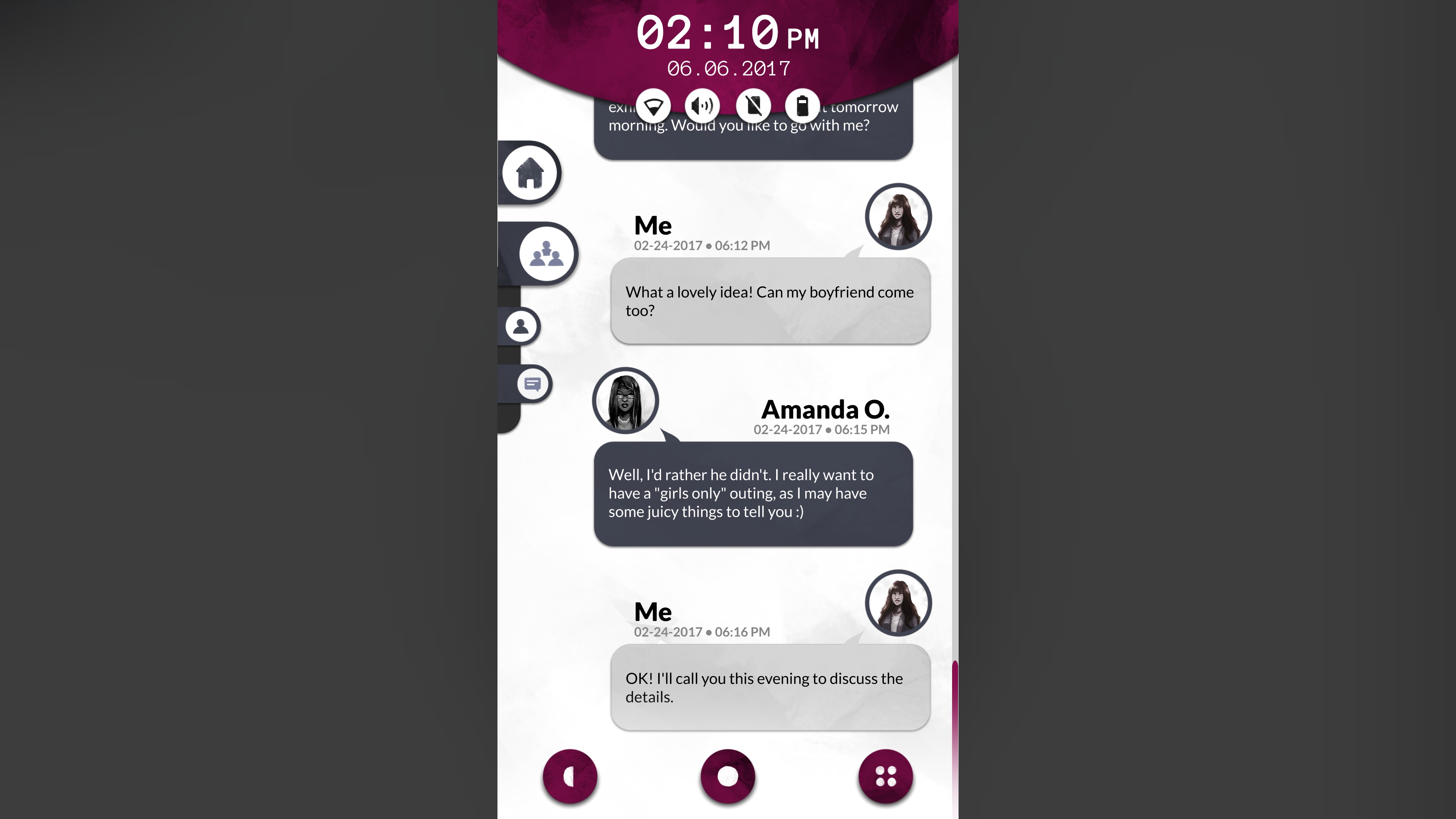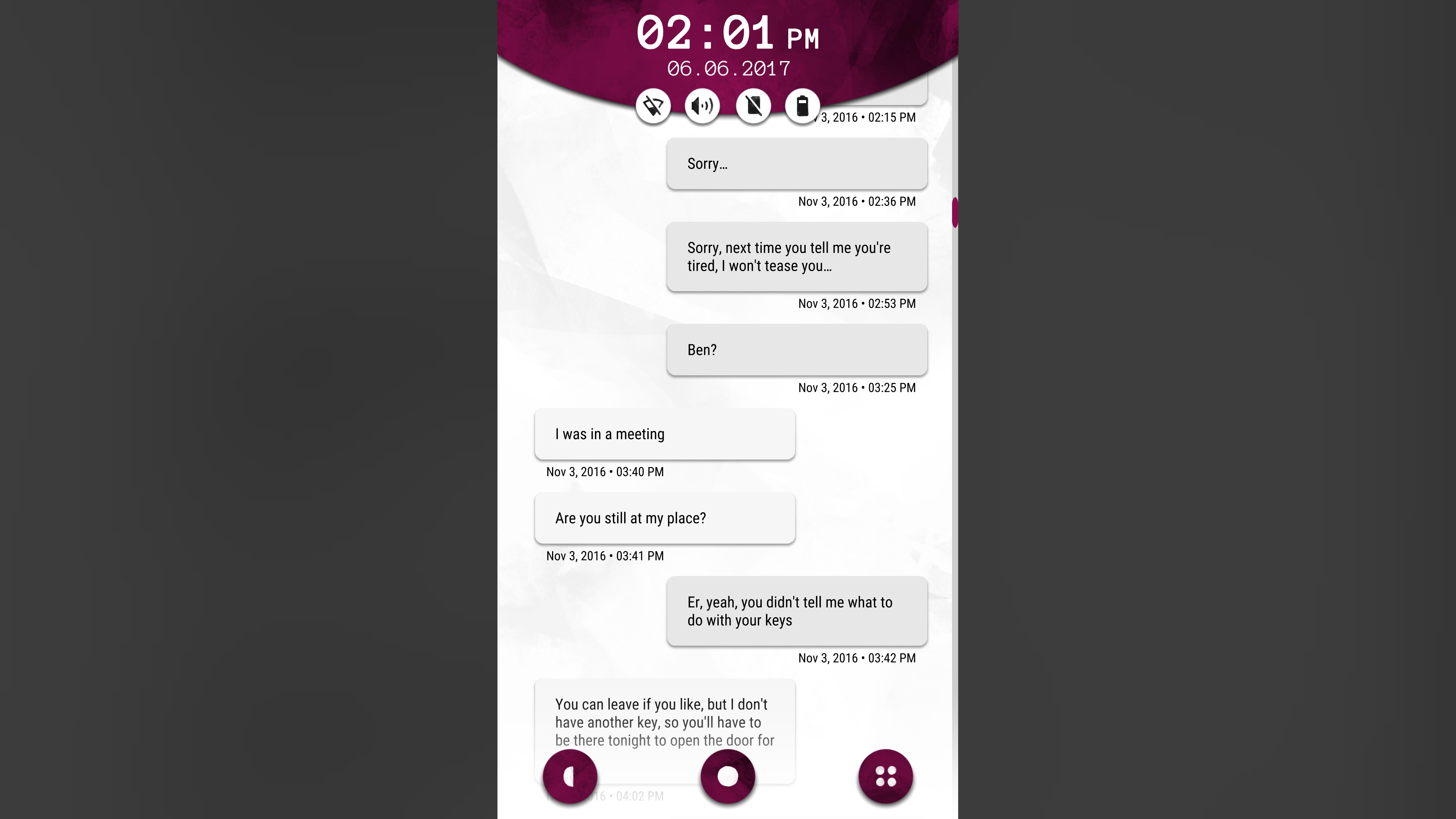Another Lost Phone: Laura's Story and the rise of the found-phone genre
The creators of A Normal Lost Phone and its follow-up talk about how they create storytelling through snooping.
Snooping through someone else's phone may be all kinds of shady, but it's also fascinating. We live our whole life through our phones—they've become little vaults of all our secrets, routines, and relationships, and that's why they're the perfect vehicle for telling difficult, personal stories. That's what French studio Accidental Queens did with their first game, A Normal Lost Phone, and they refined the idea with Another Lost Phone: Laura's Story. The follow-up has been out for a few months, but its story will stay with you longer than that.
"We wanted to try to go further with the second game," developer Miryam Houali explains from Paris. This sequel has an entirely new story, and is about a woman called Laura who seems to have disappeared. Her phone is full of messages from worried friends and family, as well as clues. It's compulsive, oddly familiar—staring at our phones is basically instinct at this point—and at times disturbing.
"We don't choose the topics of the game by accident," says Accidental Queens' Diane Landais. "It has to do with what we've lived through. The first one was very personal for us, and the second one is also something we see every day. It's not something that comes out of nowhere."

It tackles a subject that's tough for any medium—spoiler alert—that of an abusive relationship. Every time you glimpse a raw emotion laid out in texts or email it adds to the sense that you're doing something wrong, but every time you start to feel a little weird about playing digital detective some dark tendril of story, some little detail (one that's key to unlocking the wifi or the GPS or that LinkedIn -style app) will drag you back for one more rummage. And just as you start to identify with Laura through her small talk with friends, the recipes she saves, the cats she thinks are adorable, you're realizing that something is very, very wrong.
"We wanted to talk about topics that aren't talked about enough in video games in general," explains Houali. "I think it's important that we choose a topic which is important and diverse from a videogame perspective." She believes games often avoid these topics partly because the industry is still so young, and partly because publishers and developers think players only want entertainment. Houali also points out that as an indie, they can cover whatever topic they like, even ones seen as risky by bigger publishers.
"I think there are multiple reasons. One of them is that the videogame industry is mostly made of men, or at least seems that way from the outside," adds Landais. "So on any subject that talks about women or abusive relationships and stuff like that, that's something that many people will be shy about because they don't have the keys to talk about it in the right way."

Accidental Queens made sure they were doing right by their subject by talking to nonprofits that support victims of abusive relationships. "With a lot of these subjects you can't just talk about them blindly or go in with your own opinions and biases," says Landais. "You have to take a step back and realize maybe we don't have the information about what to put in the game or not. Even if we had a completely clear idea of what we wanted to put in the game it's important to have this outside perspective from people who know how to talk about this and give a more expert look." She adds with a laugh that they felt a responsibility not to put in "any bullshit."
Keep up to date with the most important stories and the best deals, as picked by the PC Gamer team.

Replica
Hack your way through through a smartphone in the name of national safety.
Orwell: Keeping an Eye On You
Turn Facebook stalking and forum lurking into a sinister artform as part of a Big Brother-style government organization. Season two is coming soon.
Sara Is Missing
Similar to Another Lost Phone: Laura's Story, but with more of a horror vibe. The real world photos and audio make it authentically creepy.
The Accidental Queens team received some backlash over parts of its first game, A Normal Lost Phone—and again, spoiler alert—that dealt with transgender issues and faking correspondence from the phone's owner. Chatting to Houali and Landais it's clear they took that feedback to heart. "It was really important for us that the message was right and we felt that all those issues on the first game undermined our message," says Houali. "So we wanted to do better for the second game."
Despite mastering the phone-snooping genre and feeling it is capable of telling all kinds of stories, the team is ready to move on. "We don't want to make a third found phone game. We think there are a lot of other mechanics and stories to tell using the same concept, but we are tired of doing them," laughs Houali.
"If we made a third one it wouldn't be as interesting as someone doing it for the first time," adds Landais. "It's not hard enough for us."

